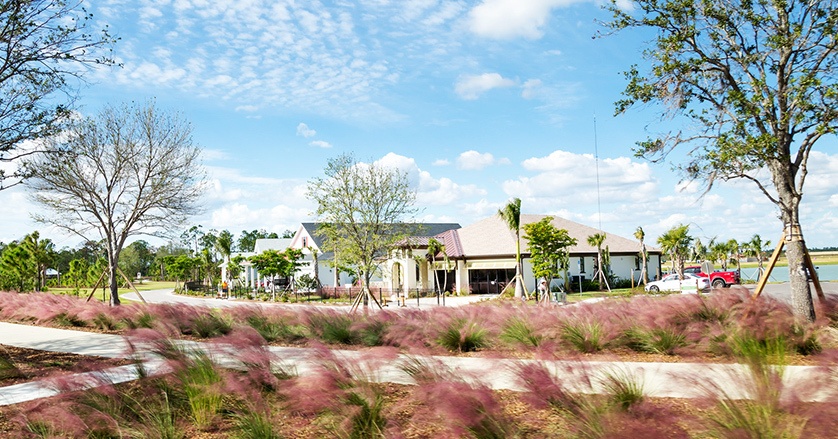You’re going to love relocating to Florida. If you come from a high-tax state such as Connecticut, Illinois or New York, you probably will be happy to know that there’s no state income tax in Florida. Plus, you’ll love the year-round sunshine and warm weather at Florida’s newest eco-friendly community, Babcock Ranch. Here’s what you need to know about relocating to Florida.
Make it official
You are considered a Florida resident when your true, fixed and permanent home is in Florida. Filing a declaration of domicile with the clerk of courts in your Florida county, qualifying for homestead exemption from your Florida county’s property appraiser or registering to vote in Florida can establish residency. Other actions, such as obtaining a Florida driver’s license, only indicate the intent to establish residency, according to the Florida Department of Revenue.
Florida is Tax Light
Florida is only one of seven states that does not impose a state income tax on its residents, helping it rank among the most tax-friendly states in the country, according to the Tax Foundation (http://taxfoundation.org/). In addition, Florida does not levy an estate tax when you die and it repealed its tax on intangible property such as stocks and bonds 10 years ago.
Florida’s general sales-tax rate is 6% and many counties impose a discretionary sales surtax in addition to the 6 percent state tax. The county tax rates vary from 0.5% to 1.5% and are levied on the first $5,000 of a purchase price. The $5,000 limit does not apply to commercial rentals, transient rentals or services.
Homestead Exemption
Homestead exemption: If you own property in Florida, that property is assessed annually by the county property appraiser. This assessment determines the amount of ad valorem taxes you owe each year on your property. The county tax collector collects ad valorem or property taxes annually.
The good news: If you maintain the property as your primary residence, you can receive an exemption of up to $50,000 from the assessed value of your property. This homestead exemption also provides for a cap on how much the assessment can rise annually.
There are other exemptions available for certain Florida homesteaders such as widows and widowers, blind persons, totally and permanently disabled persons, seniors and veterans. Babcock Ranch is located in Charlotte County and you can read more about Florida’s homestead exemption law and how to apply for homestead exemption online from the county’s property appraiser here.
Insure your new home
You may be surprised to learn that Florida doesn’t require homeowners’ insurance, but your lender likely will require it and most people want to insure the biggest investment they make.
Because of its geographic location, tropical storms and hurricanes are a fact of life in the Sunshine State from June 1 to Nov. 30. Most homeowners’ insurance covers damage caused by windstorms, hurricanes or hail, but be sure to check with a reputable insurance agent. Be aware that you cannot obtain new or additional coverage when a tropical storm or hurricane watch has been issued for any area in Florida.
The Florida Office of Insurance Regulation has a consumer helpline at 850-413-3089. You can search for insurance companies and rates here.
The Florida Department of Financial Services publishes a useful homeowners’ insurance guide here. The guide explains Florida’s property insurance market in detail.
We invite you to contact Babcock Ranch to help guide you through everything you need to know about relocating to Florida. Please call (941) 235-6900 or contact us through our website and we can help you find your new Florida home.





